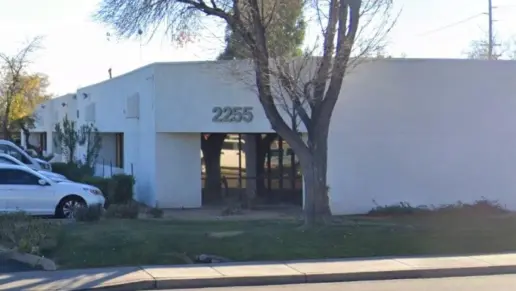About COPE Community Services
COPE Community Services Inc is a dual diagnosis outpatient clinic offering medication assisted treatment for adults in Tucson, Arizona. Services include alcohol and drug addiction treatment and behavioral health programs, and detox.
The outpatient substance use disorder treatment program at COPE Community Services Inc provides a full continuum of addiction care, including clinical assessment and treatment planning, detox, outpatient treatment, recovery focused care, counseling, medication, psychoeducational opportunities, and comprehensive aftercare.
COPE Community Services Inc provides comprehensive mental health assessments, which evaluate patients for substance use disorders and/or co-occurring mental health conditions. This helps the treatment team to devise an individualized treatment plan with the greatest chance of success. Therapeutic treatments may include individual counseling, group therapy, motivational interviewing, cognitive behavioral therapy, mindfulness, family counseling, and rational emotive behavioral therapy.
The outpatient clinic at COPE Community Services Inc treats addiction and/or other co-occurring conditions. The program begins with a thorough clinical assessment, a customized treatment plan, individual and group therapy, psychoeducation, relapse prevention support and planning, and recovery support groups. Sessions are held several days per week, depending upon the individual’s circumstances. Services offered are separated by gender. The women’s outpatient program also includes pregnancy and postpartum support.
Medication assisted treatment (MAT) involves the use of medication and behavioral therapies to overcome substance use disorders, which is considered the gold standard of treatment. MAT is appropriate for alcohol, opioid, benzodiazepine, cocaine, methamphetamines, and marijuana addictions. Medications at COPE Community Services Inc include methadone or buprenorphine. Counseling and therapeutic support include individual counseling, support groups, family therapy, and couples therapy. As clients progress and stabilize, in person office appointments tend to become less frequent.
COPE Community Services Inc accepts Medicare, Medicaid, state funding, private insurance plans, and self pay. There are sliding scale and financial assistance options available. No one is refused care due to an inability to pay.
Latest Reviews
Rehab Score
Accepted Insurance





Other Forms of Payment
Private insurance refers to any kind of healthcare coverage that isn't from the state or federal government. This includes individual and family plans offered by an employer or purchased from the Insurance Marketplace. Every plan will have different requirements and out of pocket costs so be sure to get the full details before you start treatment.
Self-pay involves paying for treatment out of your own pocket. You can use savings or credit, get a personal loan, or receive help from family and friends to fund your treatment. If you don't have insurance or your insurance plan doesn't cover a specific program, self-pay can help ensure you still get the care you need.
Military members, veterans, and eligible dependents have access to specific insurance programs that help them get the care they need. TRICARE and VA insurance can help you access low cost or no cost addiction and mental health treatment. Programs that accept military insurance often have targeted treatment focused on the unique challenges military members, veterans, and their families face.
Medicare is a federal program that provides health insurance for those 65 and older. It also serves people under 65 with chronic and disabling health challenges. To use Medicare for addiction treatment you need to find a program that accepts Medicare and is in network with your plan. Out of pocket costs and preauthorization requirements vary, so always check with your provider.
Medicaid is a state based program that helps lower-income individuals and families pay for healthcare. Medicaid covers addiction treatment so those enrolled can use their coverage to pay for rehab. When a program accepts Medicaid the client often pays very little or nothing out of their own pocket.
Addiction Treatments
Levels of Care
Programs


Clinical Services
Also known as CBT, cognitive behavioral therapy in Arizona is one of the most common types of psychotherapy. It offers a structured method of counseling that effectively treats substance use disorder and dual diagnosis disorders.
The goal of motivational interviewing in Arizona is to enhance your confidence in your ability to make changes in your life. It encourages you to commit to change and plan for the process of making those changes that will allow you to reach your goals.
Trauma therapy focuses on helping you understand and manage emotional and physical responses to past trauma. Using therapeutic interventions, you learn to reframe the experience. This helps reduce your anxiety and gives you greater control over your life.
Accreditations

The Substance Abuse and Mental Health Services Administration (SAMHSA) is a branch of the U.S. Department of Health and Human Services. Established in 1992 by congress, SAMHSA's mission is to reduce the impact of substance abuse and mental illness on American's communities.
SAMHSA Listed: Yes

The Commission on Accreditation of Rehabilitation Facilities (CARF) is a non-profit organization that specifically accredits rehab organizations. Founded in 1966, CARF's, mission is to help service providers like rehab facilities maintain high standards of care.
CARF Accreditation: Yes

State Licenses are permits issued by government agencies that allow rehab organizations to conduct business legally within a certain geographical area. Typically, the kind of program a rehab facility offers, along with its physical location, determines which licenses are required to operate legally.
State License: Arizona
Contact Information
5401 East Fifth Street
Tucson, AZ 85701










